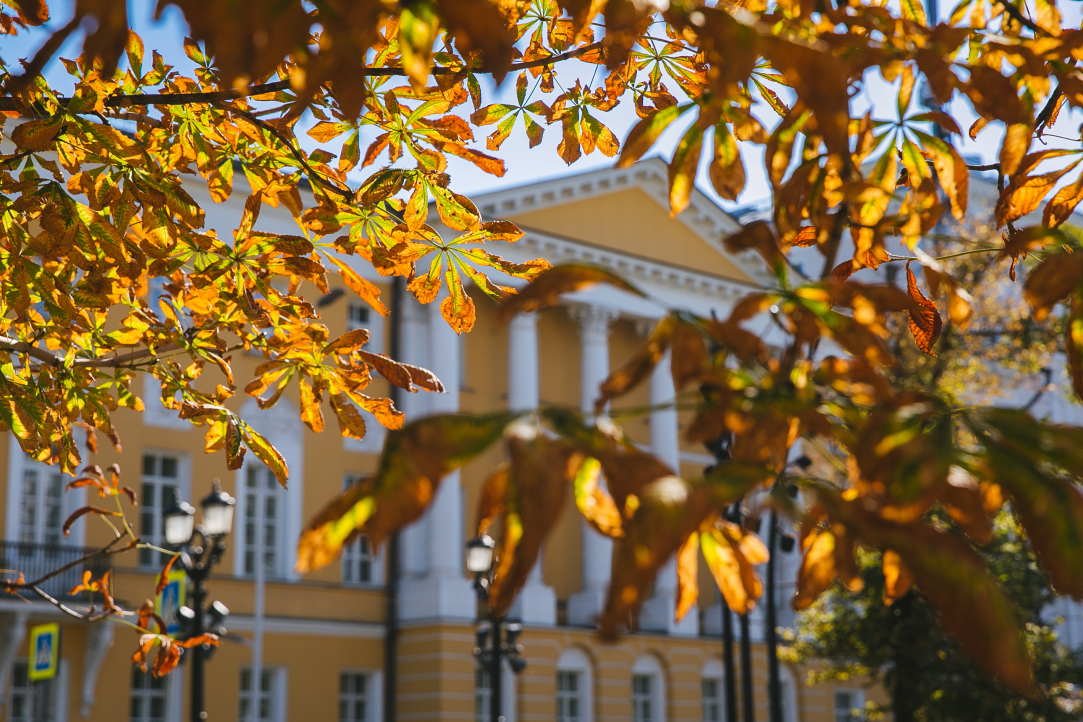
The China Puzzle: Building Business with the Celestial Empire
Cooperation with Chinese partners in all spheres of the economy is reaching a new qualitative level. At the same time, Russian entrepreneurs often lack knowledge about the specifics of doing business with China. Ways to solve this problem and strengthen the bilateral partnership were discussed at the ‘Russia—China: Business in a Multipolar World’ forum held at HSE University.

Financial Sector Risks Can Hinder Transition to Green Economy
According to HSE and MGIMO economists, increased financial sector risks in developed countries may be associated with a higher carbon footprint in banks' loan portfolios. This is likely due to the fact that in response to an unstable economic situation, banks tend to issue more loans to companies that have a detrimental impact on the environment. Although this might yield short-term profits for the banks, such trends hinder humanity's progress towards achieving a green economy. The paper has been published in Environmental Science and Pollution Research.

‘People and Society’: HSE University Hosts NAUKA 0+ All-Russian Festival
On October 7, a ‘People and Society’ thematic platform opened at HSE University’s Cultural Centre as part of the NAUKA 0+ science festival. Guests were able to explore the world of scientific discoveries and interesting experiments, as well as listen to a series of lectures from leading HSE experts.

Winner of 2023 Nobel Prize in Economics Announced
The Royal Swedish Academy of Sciences has awarded the Sveriges Riksbank Prize in Economic Sciences in Memory of Alfred Nobel 2023 to Claudia Goldin (Harvard University, Cambridge, MA, USA), ‘for having advanced our understanding of women’s labour market outcomes.’ According to the Nobel committee, Professor Goldin has uncovered key factors that determine gender differences in the labour market.
.jpg)
Online Rhythmic Transcranial Magnetic Stimulation Can Reveal the Precise Moment When Preferences Shift in the Human Brain
Cognitive dissonance is a complex and multifaceted psychological phenomenon that arises in challenging decision-making scenarios. Multiple regions of the brain participate in its occurrence, yet the neurodynamics of underlying cognitive mechanisms remain a subject of debate. Researchers from the HSE Institute for Cognitive Neuroscience have proposed the use of online transcranial magnetic stimulation applied to participants as they were actively engaged in tasks, to pinpoint the moment of cognitive dissonance resolution. Their findings have been published in a review paper in Frontiers in Human Neuroscience.
.jpg)
Millennials Are Three Times Ahead of Zoomers in the Monetised Creator Economy. Even Boomers Outperform Them. Okay Then…
A group of specialists from the HSE Institute for Cultural Studies, Vitaly Kurennoy, Alexander Suvalko and Maria Figura, have determined two main trends that are actively shaping the image of the creative economy and culture in 2021-2023: the creator economy and the maker economy.

A University's Special Status Is Correlated with a Substantial Increase in Salaries for Graduates
A university education is a highly sought-after commodity in Russia, yet the quality of universities and their programmes varies significantly. This gives rise to risks of inequality, both in the realm of education and in the labour market, and subsequently impacts the returns on higher education, which are manifested in the salaries earned by graduates. According to a study by Ilya Prakhov, Assistant Professor of the HSE Faculty of Economic Sciences, graduates from Russia’s top-tier universities enjoy a distinct advantage. The paper has been published in the International Journal of Educational Development.
.png)
How the Telephone Conquered the World. Episode Three: Connecting People
Today, we can make a telephone call to anyone, anywhere in the world—but this was not always the case. In this series of columns on IQ.HSE, Anton Basov, HSE Faculty of Computer Science editor, discusses how telephones have become an integral part of our everyday life. The third episode focuses on the evolution of telephone connections, the first subscribers, and the history of the telephone directory.

Three HSE University Projects Included in Shortlist of 9th All-Russia Prize ‘For Loyalty to Science’
The all-Russia prize ‘For Loyalty to Science’ is awarded annually for outstanding achievements in the fields of science communication, science popularisation, and enhancing the prestige of the activities of scientists and engineers in Russia. The prize is held as part of the Decade of Science and Technology and is organised by the Russian Ministry of Education and Science.

Nanai and Chukchi Found Intolerant to 'Mushroom Sugar'
A team of researchers from HSE University, the RAS Research Centre for Medical Genetics, and the Moscow State University Institute of Anthropology have examined the impact of the human genotype on the production of trehalase, an enzyme responsible for metabolising 'mushroom sugar'. The researchers examined 1,068 DNA samples collected from inhabitants of northern and Arctic regions of Russia and found that the overall risk of trehalase deficiency in certain indigenous northern populations can be as high as 60–70%. The paper has been published in Problems of Nutrition.

